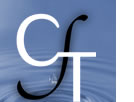 |
||||||||||
Technology Overview
Teaching Guides
- Blogs & Wikis
- Classroom Response Systems
- Course Management Systems
- Learning Spaces
- Multimedia Presentations
- Online Writing
- Podcasting
Articles
The Educause Learning Initiatve (ELI) publishes 2-page guides to important new educational technologies almost every month. Each guide provides information about what it is, how it works, where it is going, and why it matters to teaching and learning. Recent topics have included Flickr, Lulu, and Skype, with older briefings covering everything from Facebook to podcasting. (Available to ELI members only, including Vanderbilt).
-
Using Technology to Engage Student Learning
Eric Mazur of Harvard University, speaks about teaching philosophies and the role technology plays in his physics courses in this interview originally published in the Fall 2002 issue of the CFT's newsletter, Teaching Forum. -
Laptops In (and Outside) of the Classroom
Students at the Owen Graduate School of Management and the School of Engineering discuss how the use of computer laptops has affected them both in and outside the classroom in this article originally published in the Fall 2002 issue of the CFT's newsletter, Teaching Forum. -
Technology and Challenge-Based Learning
Two faculty members associated with the VaNTH Engineering Research Center, Duco Jansen and Stacy Klein, discuss how their teaching has changed as a result of their exposure to VaNTH's research into bioengineering educational technologies in this article originally published in the Fall 2002 issue of the CFT's newsletter, Teaching Forum. -
How Technology Enhances Teaching and Learning
Four Vanderbilt faculty members share their experiences in using technology to enhance students' learning in this article originally published in the Fall 2000 issue of the CFT's newsletter, Teaching Forum. -
Teaching Thoughtfully with(out) Technology
John Rakestraw, former Assistant Director for Technology at the CFT, reflects on issues related to teaching with new technologies in this article originally published in the Fall 2000 issue of the CFT's newsletter, Teaching Forum. -
Thoughts on Technology and Learning
Two undergraduates and one graduate student reflect on the use of technology in the classroom in this article originally published in the Fall 2000 issue of the CFT's newsletter, Teaching Forum. -
Validity, Research, and Reality: Student Ratings of Instruction at the Crossroads
Jennifer Franklin of the University of Arizona asks: "Since the research that supports the use of student ratings of instruction was conducted during a time when most courses were given using conventional, face-to-face teaching methods, how can we use ratings to get feedback when we adopt new teaching methods and/or technologies unexamined by ratings research?" - Implementing the Seven Principles: Technology as Lever
This article by Arthur W. Chickering and Stephen C. Ehrmann discusses ways in which technology assist instructors in implementing the "Seven Principles for Good Practice in Undergraduate Education," a set of research-based best practices developed by Arthur Chickering and Zelda Gamson.
Book Reviews
-
Interactive Learning: Vignettes from America's Most Wired Campuses. David Brown, editor. Anker, 2000. 300 pages.
-
Teaching Online: A Practical Guide. Susan Ko and Steve Rossen. Houghton Mifflin, 2001. 348 pages.
-
Building Learning Communities in Cyberspace: Effective Strategies for the Online Classroom. Rena Palloff and Keith Pratt. Jossey-Bass, 1999. 206 pages.
-
Lessons from the Cyberspace Classroom: The Realities of Online Teaching. Rena Palloff and Keith Pratt. Jossey-Bass, 2001. 204 pages.
Other Resources
- Teaching in a Digital Age: How Should Technologies Shape Our Learning Space and Pedagogical Practices?
On February 13, 2008 the Center for Teaching co-sponsored a Conversation on Teaching with the Center for Ethics exploring the challenges and opportunities provided by technology and the students who use it. This YouTube video captures the reflections of panelists Patricia Armstrong, Assistant Director, Center for Teaching; Jay Clayton, William R Kenan, Jr. Professor of English; and Matt Hall, Assistant Vice Chancellor for ITS and their use or lack of use of technology in the classroom and the discussion that followed. The video is approximately 85 minutes in length.
- Innovate
Innovate is a bimonthly, peer-reviewed online journal that features articles on the use of information technology in education. The journal routinely features articles on a variety of uses of technology in higher education. It also provides discussion forums and live webcasts for each of its articles.
- New Media Consortium
This non-profit consortium of learning organizations is "dedicated to the exploration and use of new media and new technologies." One of their primary initiatives is the Horizon Report which "describes six areas of emerging technology that will have significant impact in higher education." The 2006 Horizon Report report features social computing, personal broadcasting, cell phones, and educational gaming, among other topics.
-
Low-Threshold Applications
This web site presents a collection of almost 50 "low-threshold applications—teaching/learning applications of information technology that are reliable, accessible, easy to learn, non-intimidating and (incrementally) inexpensive." For more on low-threshold applications, see the TLT Group's Low-Threshold Application page. -
MERLOT
This web site features a large and searchable collection of online learning materials (simulations, games, applets, lectures, etc.) with annotations and peer reviews. - EDUCAUSE Learning Initiative
EDUCAUSE is a non-profit association interested in the role of information technology in higher education. This subgroup focuses on the role of IT in advancing learning. Their web page on learning technologies provides information on several technologies, including electronic portfolios and mobile learning.
Consultation
If you'd like to talk further about incorporating technology into your teaching, please contact Rhett Mcdaniel, the Educational Technologist at the CFT, to schedule a consultation.
HOME | ABOUT CFT | PROGRAMS | SERVICES | RESOURCES
Center for Teaching |
General Questions? Web Site Questions? Copyright ©2009 |
